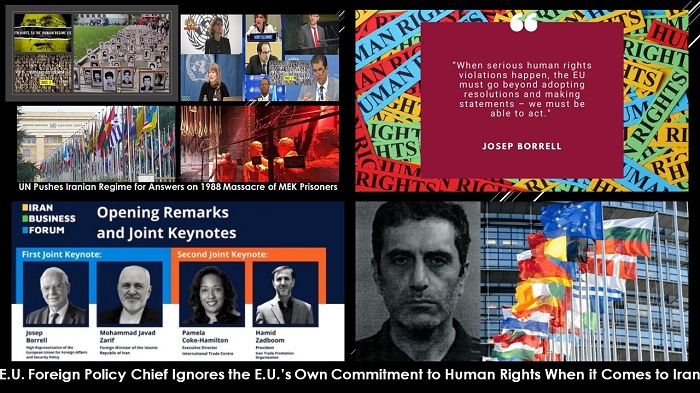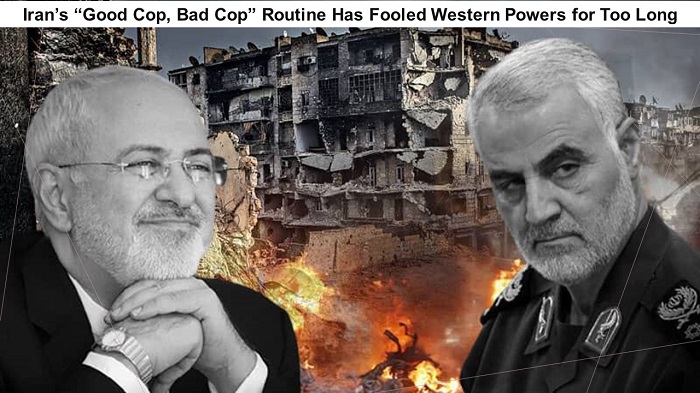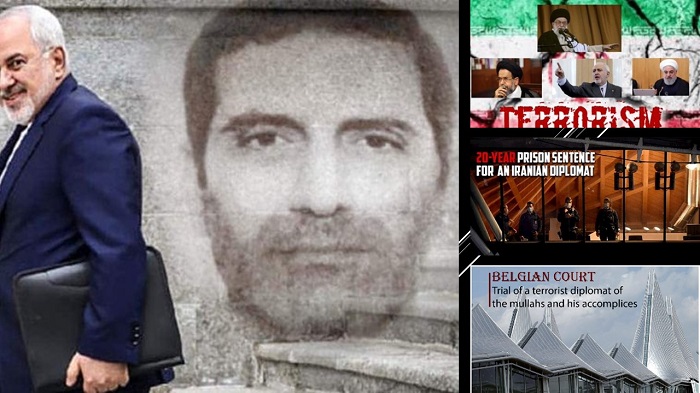
The National Council of Resistance of Iran (NCRI) and The People’s Mojahedin Organization of Iran (PMOI / MEK Iran) reported that Iran’s Revolutionary Guards (IRGC) unveiled new missiles and suicide drones, showing how the regime has wasted the country’s national wealth, during a pandemic no less, in order to pursue terrorism and warfare.
They then boasted about their military capabilities just a fortnight after the Aden airport drone attack that killed at least 26 people, which Yemeni authorities have blamed on the Iran-backed Houthis, with Yemeni Prime Minister Maeen Abdul Malik Saeed accusing the regime’s experts of plotting it.
#yemen. Attack on the Aden airport. I'm not aware of any mortar or drone that can cause this kind of structural damage.
Why am I focusing on this? B/c this is the kind of spark that blows up a lot more, involving Saudis, Iran, and more.https://t.co/ircd7Yhxx4 pic.twitter.com/qZisCUche2— Lenny Ben-David (@lennybendavid) December 30, 2020
This comes as no surprise because Iran has a long and proud history of spreading terrorism across the Middle East, either directly or with the use of proxy groups, including with the interference in the Syrian civil war to prop up dictator Bashar Assad.
On the anniversary of the elimination of IRGC Quds Force commander Qassem Solemaini, IRGC artillery commander in Syria Mahmoud Chaharbaghi said: “The Supreme Leader [Ali Khamenei] told General Soleimani to go and protect Bashar al-Assad. Soleimani’s mission was to prevent the overthrow of Bashar al-Assad’s government in Syria. There was no ISIS at that time. It was Bashar al-Assad’s opponents who had revolted. ISIS emerged later.”
In the latest developments, it has become known that the regime is continuing to plunder national resources on malign projects that further its interests.https://t.co/3UnagzNGgq#Iran #MEK #Covid_19 #coronavirus @USAdarFarsi pic.twitter.com/O1l9URYbXE
— MEK Iran (Mujahedin-e Khalq) (@MEK_Iran) May 19, 2020
Former politician Heshmatullah Falahatpisheh told Iran’s state media in 2020 that the regime wasted $20 to $30 billion in Syria.
But the regime continues to defend its presence, with Khamenei confirming on January 8 his goal of creating an Islamic State and Foreign Minister Javad Zarif once again admitting his close ties with Soleimani. Why are they so focused on expanding their presence in the region though? Simply, it is another way of ensuring they keep their grip on power.
Other ways include domestic suppression through violence against protesters and the people as a whole, as well as the violation of the 2015 nuclear accord to such a degree that even the European signatories have begun to condemn them.

French Foreign Minister Jean-Yves Le Drian said Saturday that Iran “is in the process of acquiring nuclear capacity”, something that Zarif dismissed, despite all evidence to the contrary. This shows that the regime is desperate to continue terrorism, seemingly whatever the cost to themselves. This is why Europe should stop appeasing them.
After all, Iran already sent diplomat Assadollah Assadi to bomb an opposition rally in France in 2018, for which he was put on trial in Belgium last month.
The Iranian Resistance (NCRI) and (PMOI / MEK Iran) analysis says: “World leaders should act now. They should shut down the regime’s embassies and expel its agents, impose an arms embargo on the regime and restore all six previous UN Security Council resolutions regarding the regime’s nuclear program.”

MEK Iran (follow them on Twitter and Facebook)
and People’s Mojahedin Organization of Iran – MEK IRAN – YouTube







